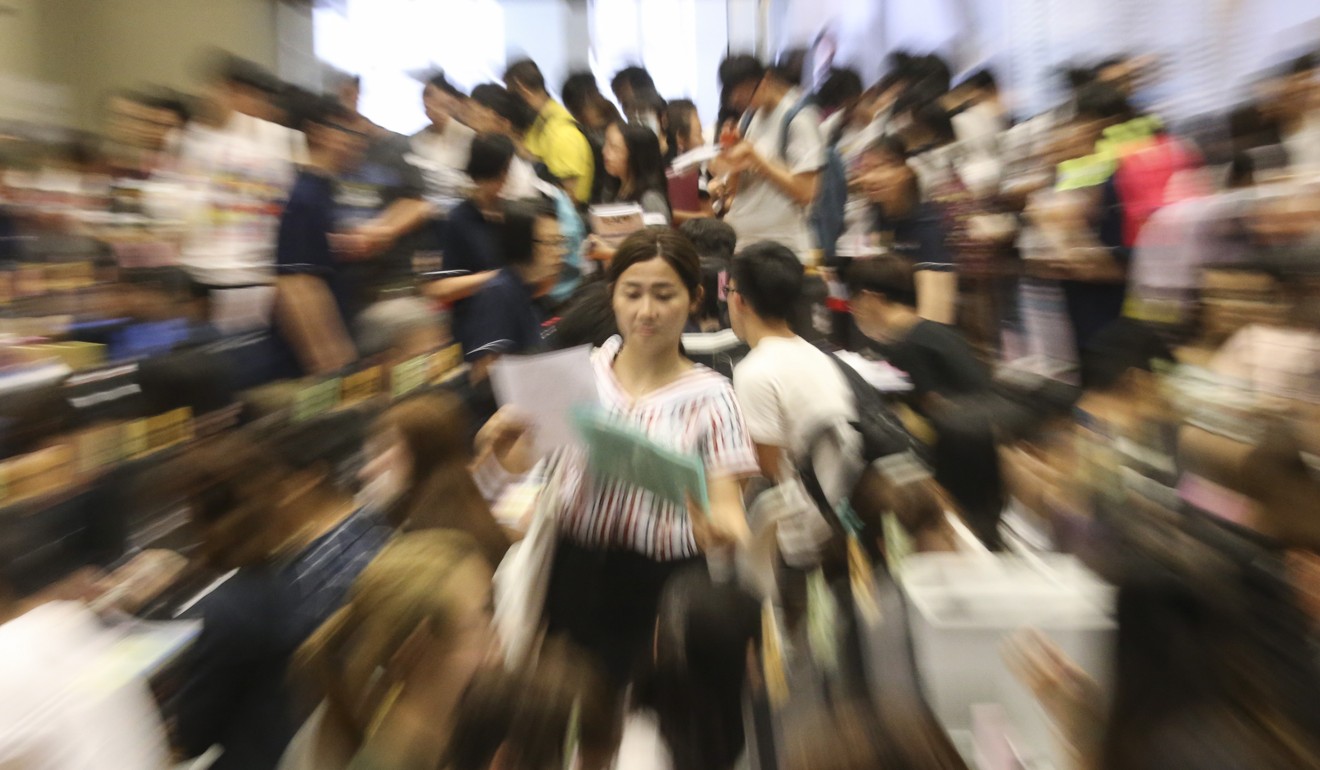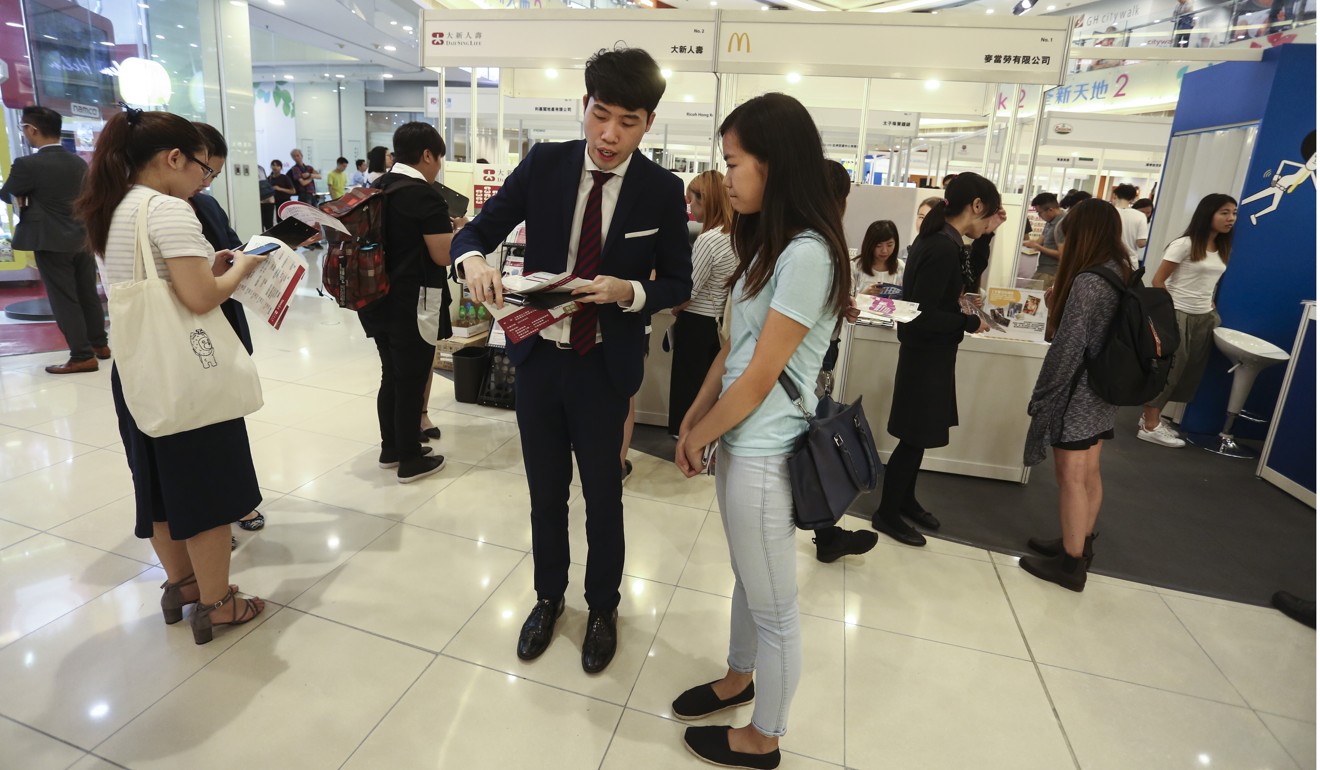
Students benefiting from degree subsidy must remember their debt to Hong Kong society
Kerry Kennedy says self-financed undergraduate students and their institutions who accept this largesse should also understand their obligation to give back to society after they graduate

Chief Executive Carrie Lam Cheng Yuet-ngor delivered on her election promise to support the education sector by providing self-financed undergraduate students with a HK$30,000 subsidy. Even the usually recalcitrant Legislative Council begrudgingly supported the initiative so that funds could flow in this financial year.
It was a quick and early victory for Hong Kong’s new leader and showed her seriousness both in supporting education and keeping promises. But is it money well spent, both for the recipients and for the government?
Students will not actually see the money – it will be deducted from their tuition fee, then the institution will be reimbursed. Also, it is not open to all students – only those who achieved a minimum standard of Level 3 in Chinese and English and Level 2 in maths and liberal studies, or those who already have an associate degree and are enrolled in undergraduate programmes.
Thus, those who have enrolled in an associate degree programme miss out, as do ethnic minority students who have not studied Chinese, and self-financed students in University Grants Committee-funded universities. Nevertheless, there is little doubt that both students and their families, as well as the eligible institutions, are grateful for the support. The subsidy may attract more students at a time of low enrolment in the private education sector.

Since it is an annual subsidy, the support will be appreciated although actual fees are hefty, often more than HK$300,000 over a four-year period. Students from families that are not well off can benefit from both the subsidy, which is not means-tested, and support from the Student Finance Office, which is means-tested.
Overall, from both a student and an institutional perspective, the subsidy may well make an important difference to the point of encouraging some students and their families who otherwise may not have a chance to move upward.
There has been some criticism that graduates of self-financed programmes may not get jobs at the end. There is little evidence for this point of view, and Hong Kong’s unemployment rate at 3.2 per cent and underemployment at 1.2 per cent suggest that there is not a great deal of wastage in the system.
There may be complaints about salaries, mobility, housing and numerous other things but actual employment does not seem to be an area for complaint. In any event, the days of rigid human resource planning on a territory-wide scale are surely at an end, with new jobs emerging, new industries developing and new opportunities opening up both regionally and internationally. Yet this context itself requires a note of caution on self-financed education.
The focus of self-financed undergraduate education must be on producing high-quality graduates. Such graduates must not only be able to meet market needs but also be capable of problem-solving, critical thinking, creativity, teamwork and entrepreneurship.

In all likelihood, today’s graduates may have six or seven careers in a lifetime and they must be ready to take them up and contribute in as many ways as possible. If such graduates come out of self-financed programmes, then the public investment will be justified.
In the end, the issue to consider is whether there are sufficient public benefits to warrant the investment
This is the responsibility of the private institutions and it is one that needs to be closely monitored. Public money must result in a public good, otherwise it will be wasted.
Some economists have made the point that a community’s aggregate skill levels can predict economic growth. Thus, the higher the average skill level, the more likely it is to stimulate the economy. It may well be that, in societies such as Hong Kong, Singapore and South Korea, the rapid growth of educational opportunities in the 20th century propelled each along very significant growth trajectories.
If private education institutions in the 21st century can produce high-quality graduates capable of grappling with social and economic issues, then this can only add to Hong Kong’s aggregate skill level. The more skilful our society, the more likely it is to be successful, and this will be a benefit to everyone, not just the graduates or their institutions.
In the end, the issue to consider when assessing the benefits of the new subsidy scheme is whether there are sufficient public benefits to warrant the investment.

It is generally accepted that the returns on any investment in higher education are more likely to be private than public and this provides the rationale for university students paying fees: they are the ones who will benefit most from their qualifications in terms of higher incomes over the course of a lifetime. Therefore, it is argued, it is only fair that they contribute to this personal outcome.
But graduates must also contribute to society, either in terms of their actual profession, or in other ways, in order to justify public investment. Students and their institutions accepting the subsidy must remember this.
Students will need to consider how they can contribute to the public good and institutions will need to look beyond their business plans to the obligations they will have to society at large. There is no such thing as a free subsidy!
Professor Kerry Kennedy is adviser (academic development) at the Education University of Hong Kong